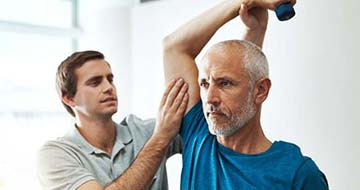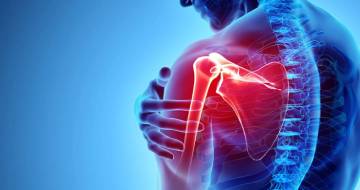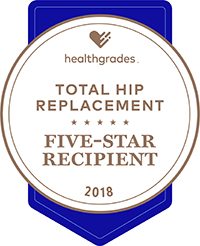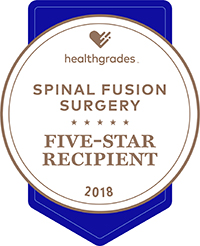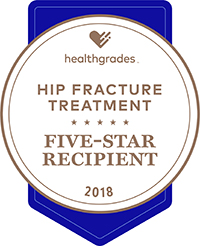Orthopedics
Delray Medical Center can help heal your shoulder injuries by giving you access to a large and experienced team of ortho...
Some joints are beyond rehabilitation. If you're moving in pain, learn about how joint replacement can get you back to d...
Learn about our minimally invasive Anterior Approach Total Hip Replacement – an alternative to traditional hip replaceme...
Pinecrest Rehabilitation Hospital’s Outpatient Physical Therapy Rehabilitation is committed to providing patients ...
Get information on evaluating foot or ankle pain and stiffness, treatment, and physical therapy offered through Delray's...
Whether you’ve dislocated your shoulder, torn a ligament, or are experiencing the pain and discomfort of tendoniti...
Orthopedic Services
Find an Orthopedic Specialist
Common Knee Injuries
While sports and recreational activities can cause a number of knee problems, some injuries result from basic wear and tear or from simply getting up from a chair. Knee problems are so common that it affects people of all ages, disrupting lives and sending thousands of people to the doctor's office every year. Knee injuries can often be treated with physical therapy or weight loss but some are serious enough to need surgical procedures.
Minimize your risks by knowing some of the most common knee injuries and what causes them.
1. Anterior Cruciate Ligament (ACL) Injuries
The ACL is a tough, flexible band of tissues that runs through the middle of the knee joint. An ACL injury occurs when the anterior cruciate ligament is torn or overstretched. Women are about two to eight times more prone to ACL injuries than men. There are increased cases of ACL injuries among teenagers involved in organized sports and recreational activities. The number one indication of an ACL injury is a popping noise combined with pain and swelling. Symptoms also include grinding sensations of your bones and kneecap and not being able to put weight on your affected leg. Partial tears can be treated at home or with over-the-counter medicine. Other options include bracing and physical therapy but reconstruction surgery may be the best option for some complete ACL tears.
2. Baker’s Cyst
Having arthritis and a cartilage tear can cause your knee to develop too much fluid leading to a Baker’s cyst. The fluid-filled cyst causes a bulge and a feeling of tightness behind your knee causing swelling, knee pain, stiffness and inability to fully flex the knee. These symptoms may worsen after you’ve been standing for a long time. In some cases, a Baker’s cyst causes no pain at all. Non-steroidal anti-inflammatory drugs like ibuprofen may be taken to reduce swelling and pain while a combination of rest, elevation, and prescription painkillers is often the recommended treatment for ruptured cysts. Draining and surgically removing a Baker's cyst can be challenging because they do not have a lining and are made of jelly.
3. Meniscus Injury
People with meniscus injury experience pain particularly when the knee is straightened. This is because the meniscus is a piece of cartilage that acts like a pad between your femur or thigh bone and tibia or shin bone. It can easily be injured when the knee is twisted while bearing weight. Other symptoms include swelling, clicking sound in the knee, locking of the knee joint, and weakness around the knee area. Arthroscopic surgery may be required if your knee does not respond well to physical therapy and medication.
4. Posterior Cruciate Ligament (PCL) Injury
Signs and symptoms of a PCL injury include pain in the knee that causes a slight limp or difficulty walking, swelling of the knees within hours of the injury and a general feeling of your knees feeling loose. PCL injuries are most common during motor vehicle accidents and contact sports. Initial treatment for PCL injuries require rest, elevation and medication. Further treatment may be needed depending on the severity of the injury including intense rehabilitation program or reconstructive surgery using either a piece of your own tissue or a piece of donor tissue.
5. Osteochondritis Dissecans
This condition results when the part of the bone under a joint surface does not have enough blood supply. This causes the bone and cartilage to loosen and break off at times. Symptoms include a sharp pain if the cartilage breaks off, weakness and locking knee joints. A person suffering from Osteochondritis Dissecans may develop osteoarthritis. Treatment includes rest, avoiding any movement that causes pain and other intense activities and physical therapy. Surgical intervention may be needed if there are no signs of improvement, if a piece of the bone breaks away completely, or if there is an underlying condition that causes osteochondritis dissecans such as bow legs or knock knees.
Sources:
Medline
National Institutes of Health
KidsHealth
Healthline



